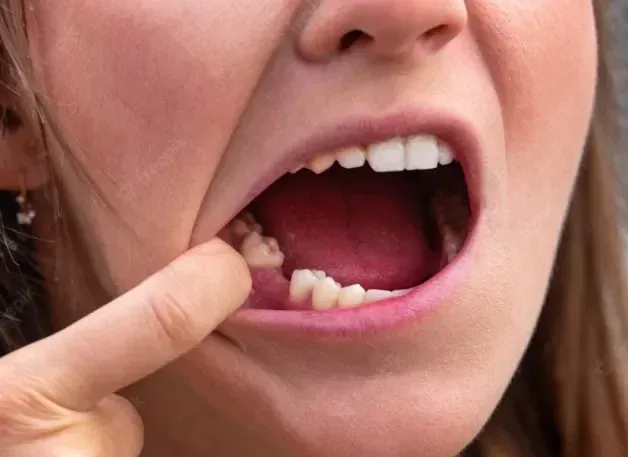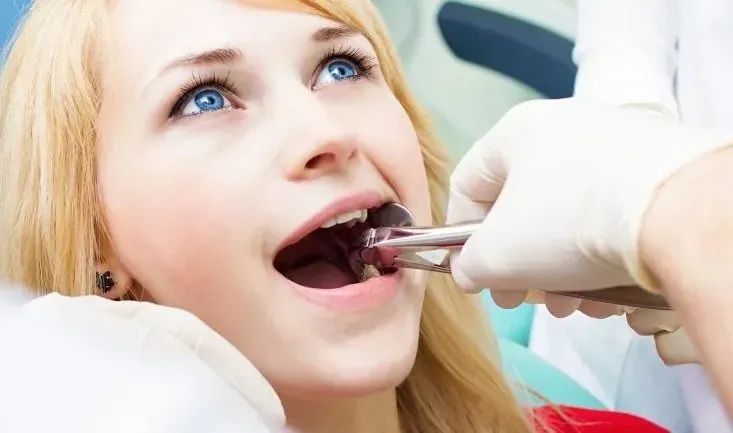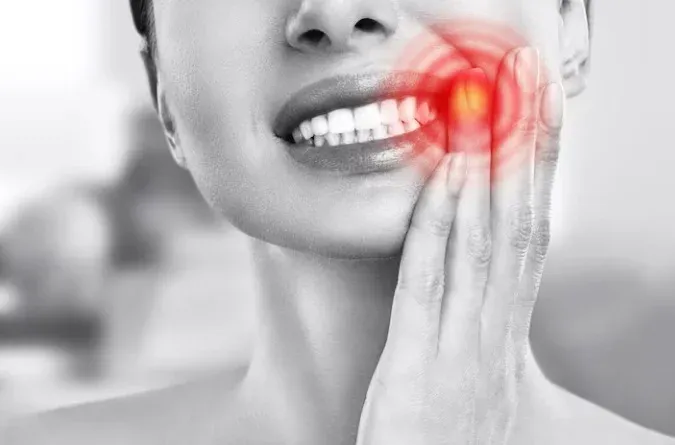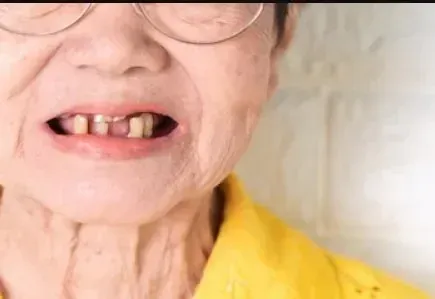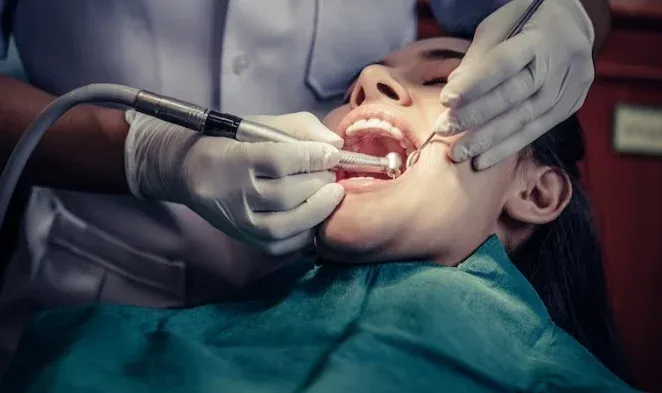I Accidentally Rinsed My Mouth After Tooth Extraction: What to Do Now (2026 Expert Guide)
When it comes to post-tooth extraction care, one of the most crucial instructions patients receive is…
When it comes to post-tooth extraction care, one of the most crucial instructions patients receive is to avoid rinsing their mouth for a specific period. This precaution might seem minor, but it plays a pivotal role in the healing process. If you’ve accidentally rinsed your mouth after an extraction, don’t panic—you’re not alone, and there are steps you can take right now to protect your recovery.
In this comprehensive 2026 guide, we’ll walk you through exactly why rinsing is risky, what immediate actions to take if you’ve already rinsed, how to prevent the dreaded dry socket, and when you should contact your dentist for concerns.
Why it helps: Essential for controlling bleeding and protecting the blood clot after tooth extraction.
Why You Should Never Rinse Your Mouth After a Tooth Extraction
Tooth extraction is one of the most common dental procedures performed in 2026, yet many patients underestimate the importance of proper aftercare. After your tooth is removed, your body immediately begins a complex healing process—and that process starts with something surprisingly simple: a blood clot.
Here’s why rinsing too soon can derail your recovery:
1. Risk of Dislodging the Protective Blood Clot
Within minutes of your extraction, a blood clot forms in the empty socket. This clot isn’t just stopping bleeding—it’s acting as a natural bandage that protects the underlying bone and nerve endings while new tissue grows. When you rinse your mouth, especially vigorously, you create pressure and movement that can dislodge this crucial clot.
If the clot is lost, you’ll develop what’s called dry socket, a painful condition that significantly delays healing and requires additional dental treatment.
2. Increased Risk of Bacterial Infection
Your mouth contains hundreds of bacterial species. While most are harmless under normal circumstances, an open wound like an extraction site is vulnerable. Rinsing—especially with tap water or non-sterile solutions—can introduce bacteria directly into the surgical area before your body has established proper defenses.
3. Delayed Healing and Complications
The first 24-48 hours after extraction are critical for establishing the foundation of healing. Any disruption during this window can set back your recovery by days or even weeks, increasing your risk of complications and prolonging discomfort.
What to Do If You Accidentally Rinsed Your Mouth After Extraction
Mistakes happen. Maybe you rinsed out of habit, or perhaps you forgot the instructions in the moment. The good news is that if you act quickly, you can minimize potential damage. Here’s your step-by-step action plan:
Immediate Steps (Do These Right Now)
Step 1: Stop Rinsing Immediately
The moment you realize what you’ve done, stop all rinsing activity. Gently allow any liquid in your mouth to fall out—don’t spit forcefully, as this creates suction that can further dislodge the blood clot.
Step 2: Bite Down on Clean Gauze
Take a piece of sterile gauze (your dentist should have provided this) and fold it into a thick pad. Place it directly over the extraction site and bite down with firm, steady pressure for 30-45 minutes. This helps re-establish clotting and stops any bleeding you may have triggered.
Step 3: Avoid Creating Suction
For the next 72 hours, be extra cautious about activities that create suction in your mouth. This means no straws, no smoking, no spitting, and definitely no more rinsing. Even gentle suction can pull the clot loose.
Contact Your Dentist
Step 4: Call Your Dental Office
Contact your dentist or oral surgeon as soon as possible—even if it’s after hours, most practices have an emergency line. Explain what happened, when it happened, and whether you’re experiencing any bleeding. They may want to see you for a quick check or provide specific instructions based on your situation.
Step 5: Monitor for Warning Signs
Over the next 24-48 hours, watch carefully for signs of dry socket or infection, including severe pain that worsens after 2-3 days, bad breath or taste, visible bone in the socket, or pain radiating to your ear. If you notice any of these symptoms, especially persistent pain beyond the first week, contact your dentist immediately.
Why it helps: Reduces swelling and inflammation after tooth extraction while promoting comfort during recovery.
How to Prevent Dry Socket: Your 2026 Protection Plan
Dry socket (alveolar osteitis) remains one of the most common complications after tooth extraction, affecting 2-5% of all extractions and up to 30% of wisdom tooth removals. The good news? It’s largely preventable if you follow these evidence-based guidelines:
The First 24 Hours: Critical Protection Period
Avoid All Rinsing
This bears repeating: no rinsing, swishing, or gargling for at least 24 hours. If you need to clean your mouth, gently dab with a damp cloth around the extraction area—never directly on it.
Say No to Straws and Smoking
Both create negative pressure in your mouth that can suck the blood clot right out of the socket. If you smoke, this is the perfect time to quit—or at minimum, abstain for at least 72 hours (though 7 days is ideal).
Keep Your Head Elevated
Sleep with your head elevated on 2-3 pillows for the first few nights. This reduces blood flow to the area, minimizing swelling and helping the clot stay in place.
Days 2-7: Gentle Care Phase
Start Gentle Salt Water Rinses (After 24 Hours)
After the first 24 hours, you can begin very gentle salt water rinses. Mix 1/2 teaspoon of salt in 8 ounces of warm water. Tilt your head to let the solution flow over the area—don’t swish vigorously. Do this after meals and before bed.
Stick to Soft, Cool Foods
Your diet should consist of soft foods that require minimal chewing: yogurt, smoothies (no straw!), mashed potatoes, scrambled eggs, and protein shakes. Avoid anything hot, spicy, crunchy, or chewy that could irritate the site.
Maintain Oral Hygiene Carefully
Continue brushing your teeth, but avoid the extraction site for the first few days. After that, you can gently brush around the area using a soft-bristled toothbrush. If you’re experiencing sensitive teeth pain in the surrounding area, this is normal and should subside within a week.
Lifestyle Factors That Matter
Avoid Strenuous Exercise
Physical exertion increases blood pressure, which can cause bleeding and dislodge the clot. Take it easy for at least 3-5 days—your workout routine can wait.
Stay Hydrated (The Right Way)
Drink plenty of water, but sip slowly from a cup—never a straw. Proper hydration supports healing and helps prevent infection.
Take Medications as Prescribed
If your dentist prescribed antibiotics or pain medication, take them exactly as directed. For pain management, many dentists recommend alternating Tylenol and ibuprofen for optimal relief, though you should always follow your specific instructions.
What to Expect During Normal Tooth Extraction Healing
Understanding the normal healing timeline helps you distinguish between expected discomfort and signs of complications. Here’s what typically happens during recovery in 2026:
First 24 Hours: The Critical Window
- Bleeding: Light oozing is normal for the first few hours. Bite on gauze as instructed, changing it every 30-45 minutes until bleeding stops.
- Pain: Expect moderate discomfort that peaks 6-8 hours after the anesthesia wears off. Your prescribed pain medication should keep this manageable.
- Swelling: Some swelling begins within hours and is completely normal. Apply ice packs for 20 minutes on, 20 minutes off during the first day.
- Blood Clot Formation: The protective clot should be fully formed by the end of day one.
Days 2-3: Peak Discomfort Phase
- Swelling Peaks: Don’t be alarmed if swelling increases—this typically peaks around 48 hours post-extraction.
- Bruising May Appear: Some patients develop facial bruising, which is normal and will fade over the next week.
- Jaw Stiffness: Difficulty opening your mouth fully is common, especially after wisdom teeth removal.
- White Tissue: You may notice white or yellowish tissue forming over the socket—this is healthy granulation tissue, not infection.
Days 4-7: Improvement Begins
- Pain Decreases: Discomfort should steadily improve each day. If pain suddenly worsens after day 3-4, contact your dentist.
- Swelling Subsides: Facial swelling should noticeably decrease during this period.
- Diet Expansion: You can gradually reintroduce slightly firmer foods, though still avoid anything hard or crunchy.
- Return to Activities: Most people can resume normal activities by day 5-7.
Weeks 2-4: Continued Healing
- Socket Fills In: The extraction site continues filling with new tissue from the bottom up.
- Bone Remodeling: Underneath, your jawbone begins the remodeling process that will continue for several months.
- Normal Function Returns: By week 3-4, most patients can eat normally and have minimal to no discomfort.
For a detailed visual guide to what your extraction site should look like at each stage, check out our comprehensive resource on tooth extraction healing pictures.
Why it helps: Provides targeted numbing relief for extraction site discomfort during the healing process.
When to Contact Your Dentist: Red Flags You Shouldn’t Ignore
While most extractions heal without complications, certain symptoms warrant immediate professional attention. Contact your dentist right away if you experience any of the following:
Severe or Worsening Pain
Pain should steadily improve after day 2-3. If you experience severe, throbbing pain that suddenly worsens around day 3-5, especially if it radiates to your ear or jaw, this is a classic sign of dry socket. This condition requires professional treatment—don’t try to manage it on your own.
Excessive or Prolonged Bleeding
Light oozing for the first 24 hours is normal, but heavy bleeding that doesn’t stop with gauze pressure, or any bleeding that continues beyond 24 hours, needs evaluation. If you’re experiencing bleeding after 2 hours that seems excessive, call your dentist.
Signs of Infection
Watch for these infection indicators:
- Fever above 101°F (38.3°C)
- Increasing swelling after day 3
- Pus or foul-smelling discharge from the extraction site
- Persistent bad taste in your mouth
- Red streaks extending from the extraction area
- Swollen lymph nodes in your neck
Difficulty Breathing or Swallowing
While rare, severe swelling can occasionally affect your airway. Any difficulty breathing or swallowing is a medical emergency—call 911 or go to the emergency room immediately.
Numbness That Persists Beyond 24 Hours
Some numbness immediately after extraction is expected due to anesthesia. However, if numbness in your lip, tongue, or chin persists beyond 24 hours, this could indicate nerve involvement and requires prompt evaluation.
Allergic Reaction to Medications
Signs of an allergic reaction include:
- Rash or hives
- Difficulty breathing
- Swelling of face, lips, or tongue
- Rapid heartbeat
- Dizziness or fainting
If you suspect an allergic reaction, seek immediate medical attention.
Persistent Nausea or Vomiting
Some nausea from anesthesia or pain medication is common, but persistent vomiting can lead to dehydration and may dislodge the blood clot. Contact your dentist if you can’t keep fluids down.
Special Considerations for Different Types of Extractions
Wisdom Teeth Removal
Wisdom tooth extractions typically involve more extensive surgery and longer recovery times. The risk of complications, including dry socket, is higher. If you’ve had wisdom teeth removed, be especially vigilant about following post-operative instructions. Most patients experience peak discomfort around day 2-3, with significant improvement by day 5-7.
Multiple Extractions
If you’ve had multiple teeth removed, your recovery may take longer, and you’ll need to be extra careful about protecting multiple extraction sites. Your dentist may provide additional gauze and specific instructions for managing multiple healing areas.
Surgical vs. Simple Extractions
Surgical extractions (which involve cutting into the gum tissue or removing bone) require more healing time than simple extractions. Your dentist will provide specific instructions based on the complexity of your procedure.
Long-Term Care and Prevention
Once you’ve successfully navigated the initial healing period, consider these long-term factors:
Bone Preservation
After tooth extraction, your jawbone begins to resorb (shrink) in that area. If you’re planning to get a dental implant or bridge in the future, discuss bone grafting options with your dentist during the extraction appointment.
Preventing Future Extractions
The best extraction is the one you never need. Maintain excellent oral hygiene, attend regular dental checkups, and address problems like tooth decay at the gum line before they progress to the point of requiring extraction.
Replacement Options
Don’t leave gaps in your smile permanently. Missing teeth can cause neighboring teeth to shift, affect your bite, and lead to bone loss. Discuss replacement options like implants, bridges, or dentures with your dentist once you’ve fully healed.
Final Thoughts: Your Recovery Is in Your Hands
If you accidentally rinsed your mouth after tooth extraction, remember that quick action and proper follow-up care can prevent serious complications. The key is to stop immediately, protect the extraction site, and stay in close communication with your dental team.
Most patients heal beautifully from tooth extractions when they follow post-operative instructions carefully. Your body has remarkable healing abilities—your job is simply to create the right conditions for that healing to occur.
By avoiding rinsing for the first 24 hours, protecting the blood clot, maintaining gentle oral hygiene, and watching for warning signs, you’re giving yourself the best possible chance for a smooth, comfortable recovery.
Remember, your dentist is your partner in this process. Don’t hesitate to reach out with questions or concerns—that’s what they’re there for. With proper care and attention, you’ll be back to normal activities and eating your favorite foods before you know it.
Stay patient, follow instructions, and trust the healing process. You’ve got this!

